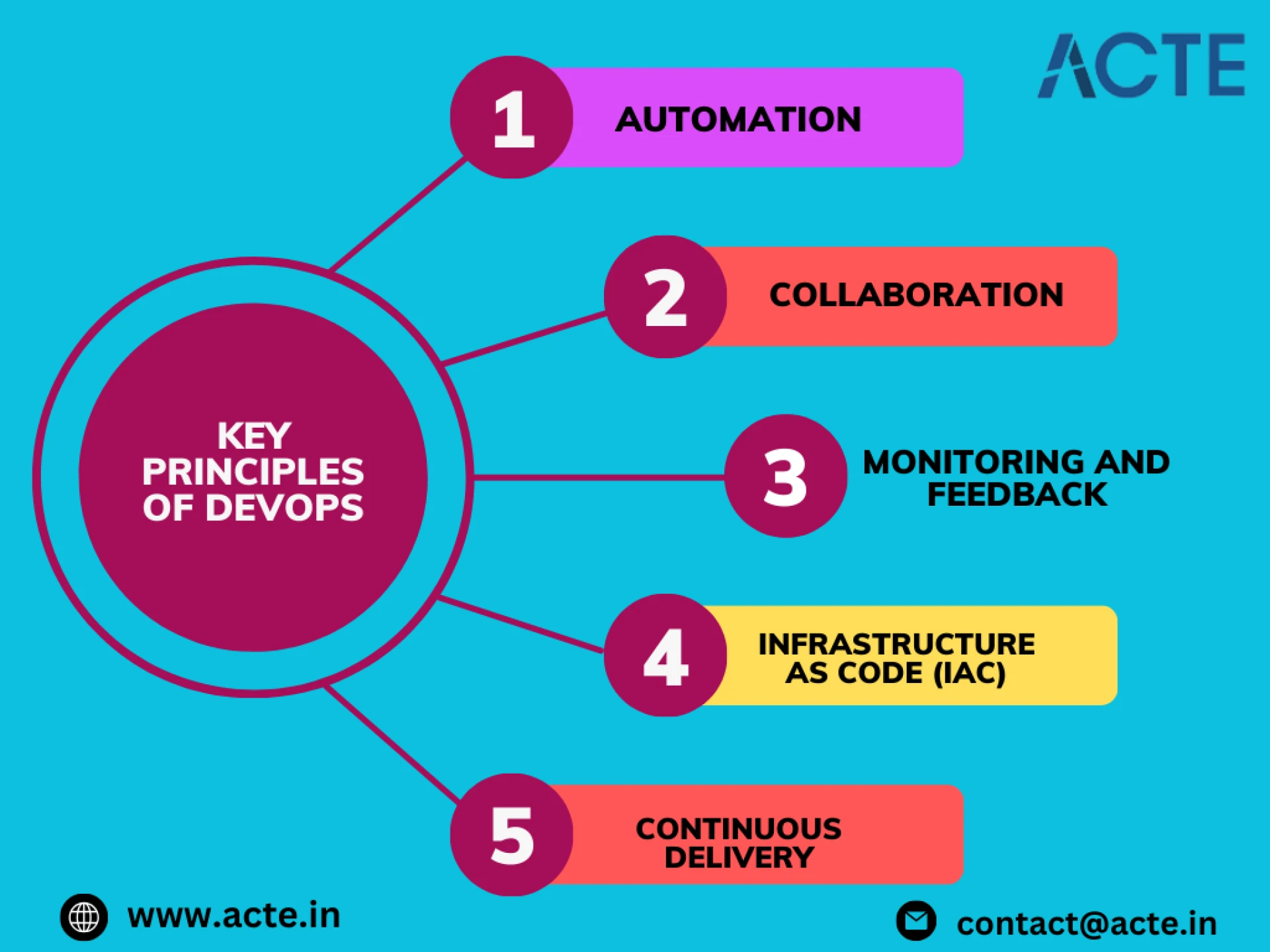At its heart, DevOps prioritizes automation, continuous integration, continuous delivery, and robust communication and collaboration among development, operations, and stakeholders throughout the software lifecycle. This strategy aims to streamline workflows, boost efficiency, and expedite the delivery of superior software products and services. Enrolling in a respected Devops Training in Pune can help people who want to become experts in the field gain the skills and information necessary to successfully navigate this ever-changing environment.

Understanding DevOps
Devops, a fusion of "development and operations\'\' embodies a cultural and philosophical approach to software development. Its core aim is to foster seamless collaboration between software developers (Dev) and IT operations (Ops), breaking down traditional silos and promoting a unified workflow throughout the software development lifecycle.
Key Principles of DevOps

Automation: Focuses on automating repetitive tasks to enhance efficiency and reliability, such as through continuous integration/continuous deployment (CI/CD) pipelines.
Collaboration: Encourages open communication and teamwork among development, operations, and other stakeholders, enhancing visibility and mutual understanding.
Monitoring and Feedback: Emphasizes real-time monitoring of applications and infrastructure to gather feedback and drive continuous improvement.
Infrastructure as Code (IaC): Treats infrastructure provisioning and management as code, ensuring consistent and reproducible deployments while minimizing configuration drift.
Continuous Delivery: Aims to deliver software in short cycles, enabling it to be released to production with confidence at any time.
Benefits of DevOps
Accelerated Time to Market: By automating processes and fostering collaboration, DevOps enables quicker delivery of features and updates.
Enhanced Reliability: Automation and monitoring help detect and address issues early, minimizing downtime and improving overall system reliability.
Scalability: Infrastructure as Code allows for flexible scaling of resources, adapting efficiently to changing demands.
Improved Team Dynamics: Collaboration and shared responsibilities cultivate a culture of trust and innovation, boosting job satisfaction and retention.
Implementing DevOps
Implementing DevOps goes beyond adopting tools; it requires a cultural shift and a commitment to continuous improvement:
Cultural Alignment: Ensure teams embrace DevOps principles, fostering a shared responsibility for software delivery and operations.
Toolchain Integration: Adopt tools that support automation, collaboration, and monitoring across the development lifecycle.
Continuous Learning: Invest in ongoing training to keep pace with evolving DevOps technologies and practices.
Measurement: Define metrics to track progress and identify areas for improvement, such as deployment frequency and mean time to recovery (MTTR). Enrolling in Devops Online Course can enable individuals to unlock DevOps\' full potential and develop a deeper understanding of its complexities.
Conclusion
DevOps goes beyond mere methodology or tools; it represents a cultural transformation that integrates development and operations seamlessly. Embracing DevOps principles empowers organizations to cultivate improved collaboration, efficiency, and ultimately deliver greater value to their customers. As technology progresses, these principles remain crucial for fostering innovation and achieving success in the digital era.
Adopt DevOps to empower your teams in building, deploying, and managing software with unparalleled effectiveness. Together, let\'s forge a future in technology that is more collaborative and impactful than ever before.

